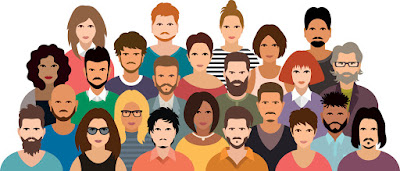One month after the election, liberal’s heads are still spinning. Their initial shock of a Donald Trump victory may have dwindled, but their resentment and resistance are still vacillating between a simmer and boil. As they scramble to answer the question "How did this happen?", (a question that will never find solace in absolute terms), a fraction of America has purportedly found an answer: identity politics. The voice of the white working class, they argue, is drowning in a cacophony of African-American, Asian-American, Latino, LGBT, Muslim, and women’s voices.
The theory is that Clinton lost the election because she was conducting the team identity orchestra while ignoring the white working class ensemble— that is, until Trump picked up the baton, organized his musicians, and struck up the band. Somehow, his group equipped with fewer people managed to play stronger and louder.
The story of the white working class, for the time being, is on center stage. But in the quest for a sliver of the spotlight, there lurks a bigger question: Whose stories get to be told?
We would be remiss to overlook television’s role in answering such a question. Many stories are told via cable and broadcast networks. And, let’s face it, we Americans love our TVs. For many of us, they are portals into worlds unknown; they expose us to cultures that we might never experience first hand. This clout, this influential potency— what should be television’s strength— is its most formidable power.
Many of us have distorted ideas about each other based on what we’ve seen on television. Just talk to any student at my work site—a predominately Latino and African-American high school— and he will admit to never having interacted with a white person, yet he knows what they — the monolithic “they”— are like because he’s watched Girl Meets World and Family Guy.
Growing up in Southern California, I was fortunate to attend ethnically diverse schools, yet my notions of the behind-the-scenes lives of my white friends were shaped by television shows such as Family Ties, Full House, and Rosanne — the most white working class narrative I had seen as a kid. Although these sitcoms were popular and critically acclaimed, two of them perpetuate the myth of the happy middle-class white family who lives in a two-story house and never worries about paying their bills.
2016 is the most diversified year in television that I’ve seen. Streaming services and on-demand access have expanded our options. Shows such as Atlanta, Fresh Off the Boat, Broad City, Queen Sugar, Jane the Virgin, and Fleabag are shifting our perspectives on what it means to be human.
In a perfect world, television would be a panoply of narratives that do not sensationalize, romanticize, or bastardize our lives. These stories would, instead, tell the truth: that no single ethnic group has a monopoly on happiness and financial success. The breadth of our experiences is far more diverse than our skin colors and religions and sexual orientations. If the media took the time to reflect the ethnic and socioeconomic landscapes of our communities with honesty and integrity, then maybe this concept of identity politics wouldn't be such a bitter pill to swallow.



